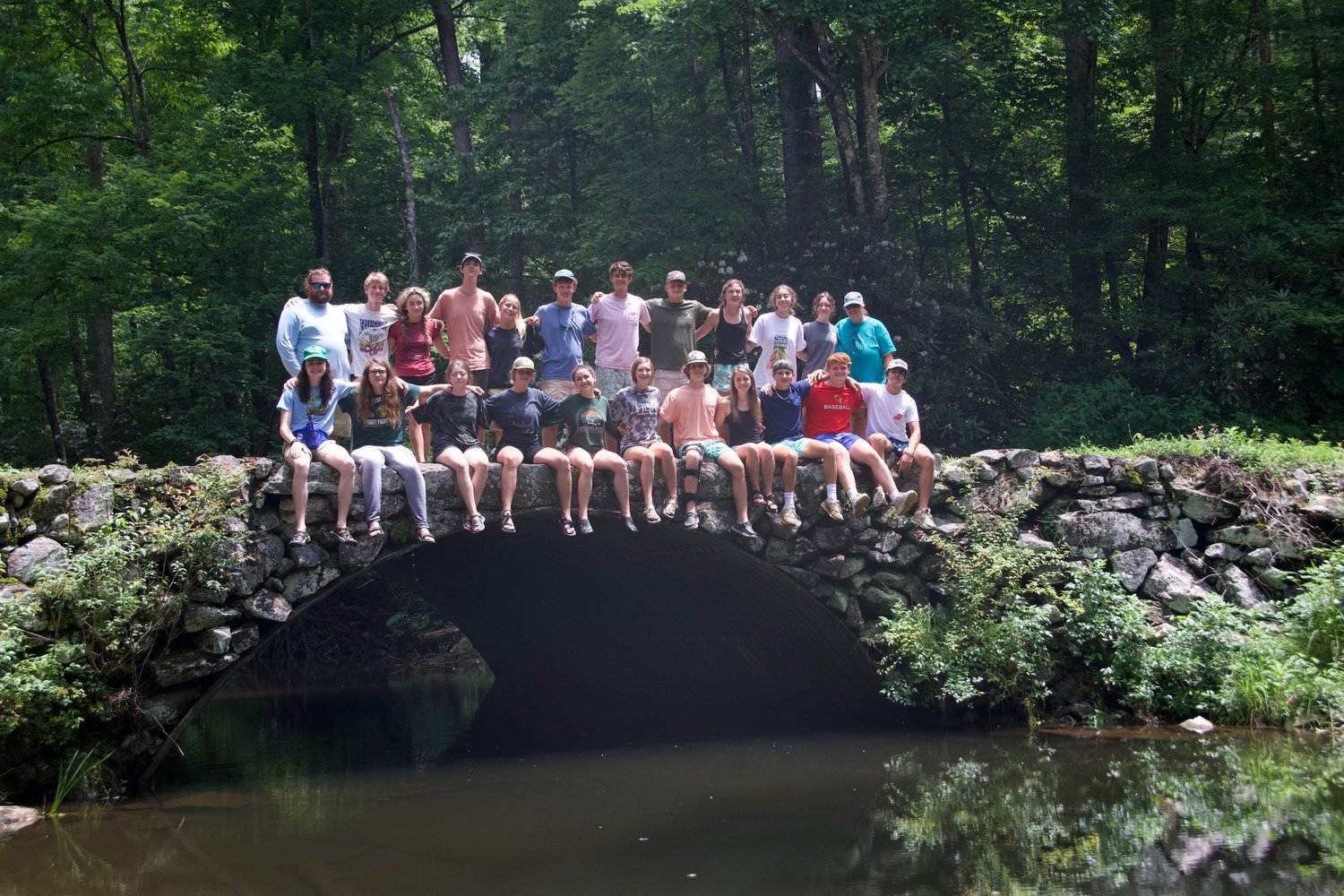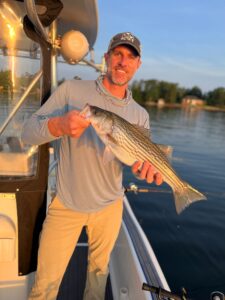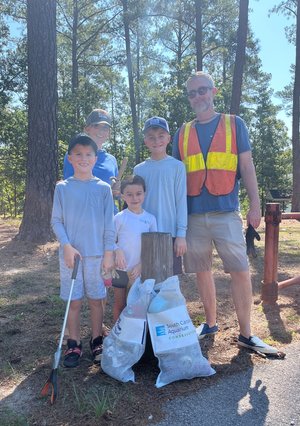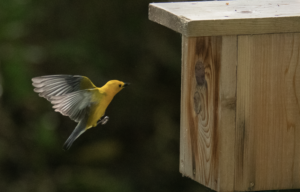“Fish on!” Recently I had the honor of introducing 21 Camp Wildwood second year campers to our incredible upstate, including an opportunity to fly fish in the spectacular Chauga River where we caught brown trout and rainbow trout on the fly.
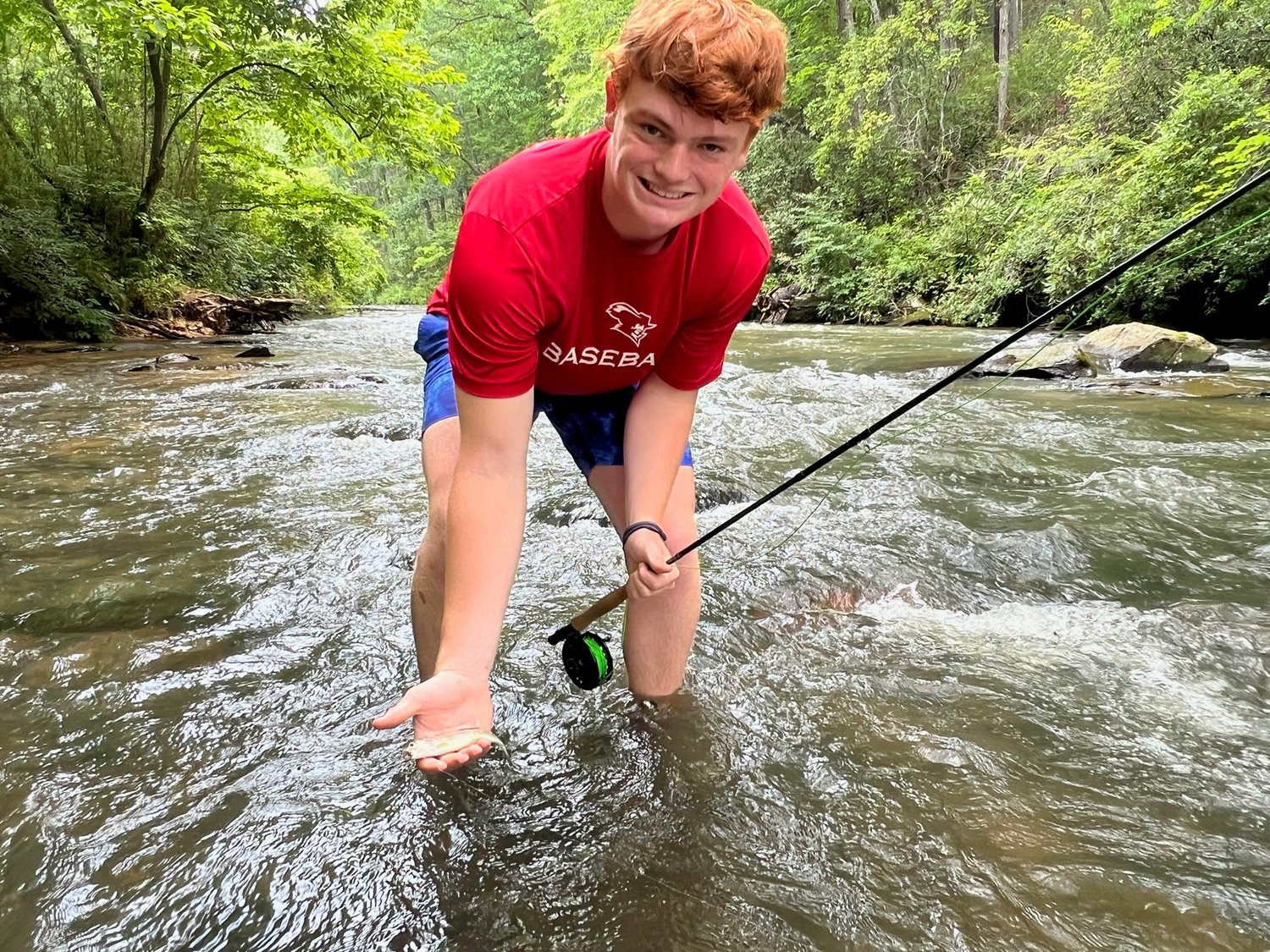
Camp Wildwood is a natural resources camp sponsored by the SC Wildlife Federation, the South Carolina Department of Natural Resources, the Harry Hampton Memorial Wildlife Fund, and the Garden Club of South Carolina. As a former Camp Wildwood camper, this program is very close to my heart. I look forward to attending this incredible week every year and getting to introduce many conservation and natural resources ideas to campers.
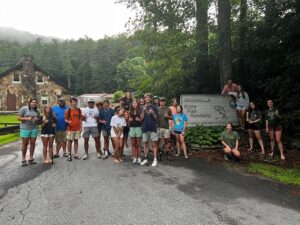
During this year’s camp, the second year campers toured and learned about our freshwater trout species at Walhalla State Fish Hatchery, rafted the Chattooga River, fly fished the Chauga River with the Chattooga River Fly Shop, had an in depth introduction to wildlife in South Carolina and how to protect it, boated on Lake Jocassee, visited Stumphouse Tunnel, Isaqueena Falls, Sassafras Mountain, and helped the 80 first year campers go fishing at King’s Mountain State Park. Camp Wildwood helps high school students develop a more in-depth knowledge of South Carolina’s natural resources and introduces them to careers in the outdoors. It also helps them develop leadership in conservation for them to take back to their school and community.
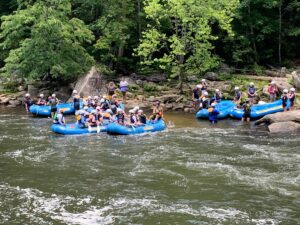
Our campers this year showed a particular interest in how natural resources help our state’s economy. They made the connection with natural resources, conservation, and economic impact on South Carolina. They asked thought provoking questions of our speakers and fully engaged with every activity. The next step for these campers will be the Third Year Coastal program next summer and then selected campers will become counselors.
No matter whether the campers go into a natural resources related field or not, most Camp Wildwood campers show support for conservation in whatever field they choose. Many former campers in nursing, politics, engineering, and more stay connected and find a way to support conservation through community actions and by supporting organizations like the South Carolina Wildlife Federation.
